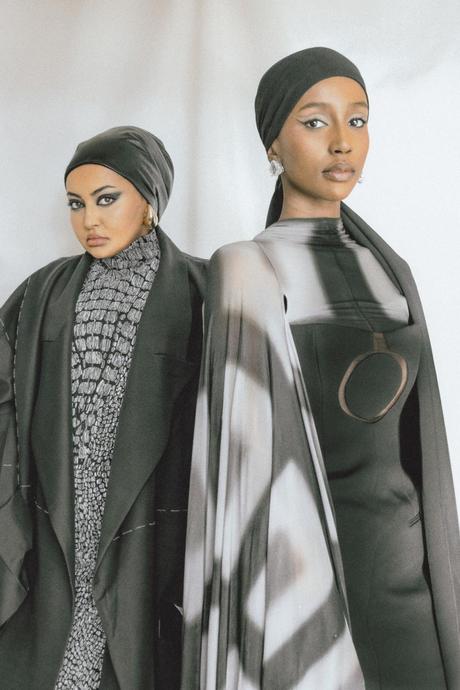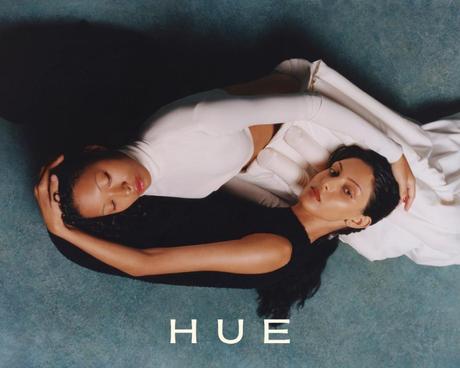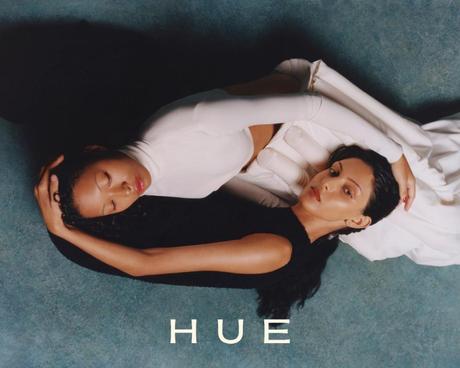
The skincare industry is a lucrative and booming industry, but it's no secret that it has been failing those with melanin-rich skin tones in recent years.
Historically, skin care tests have focused on lighter skin, despite reactions such as inflammation or irritation looking different on darker tones. So it's no surprise that there are people among consumers who feel invisible.
Rihanna's Fenty Beauty helped spark inclusivity in makeup, with more than 50 foundation shades that expanded beyond the rigid ten versions of the same beige we've always known. The Fenty Effect gripped the beauty industry and mainstream brands such as Dior, Cover Girl and Revlon followed suit, introducing 40 shades to their ranges the year after Fenty's launch. But the burning passion to revolutionize the skin care industry is yet to happen.
While aspects of skin care remain the same, there is no one-size-fits-all. Depending on the melanin content, black and brown skin has unique properties that require specific attention in skin care. Skin rich in melanin is prone to persistent post-inflammatory hyperpigmentation, dark circles and acne scars, according to a study published in 2018 in the National Library of Medicine.
In some cases, the Fitzpatrick skin phototype, a classification system used to categorize the spectrum of skin colors, is used to develop and test skin care and makeup products. The scale was first introduced in 1975 by Thomas B Fitzpatrick, a Harvard dermatologist, and was used by dermatologists for decades to determine how different skin tones respond to UV rays and how to treat skin conditions. In recent years the scale has been dismissed as wildly inaccurate and biased, with only two of the six categories covering the broad spectrum of brown and only one covering the many shades of black.
Melanin-rich skin is prone to persistent post-inflammatory hyperpigmentation, dark circles and acne scars
The story continues
Multi-ethnic consumers in Britain spend 25 percent more on health and beauty products, but 22 percent choose specialty stores, while that figure rises to 30 percent among black women. A Superdrug survey found that 70 percent of black and Asian women felt the high street was not meeting their beauty needs.
Enter the smart entrepreneurs who are carving a niche for themselves in the skincare industry instead of waiting for change. Debuts HUE, a brand founded to help demystify skin care for people of color. Co-founders and close friends British-Somali NHS doctor Hani Hassan and British-Arab architect Mona Haidar launched HUE with a vision to address the neglected needs of brown and black skin.
Like many others dealing with hyperpigmentation, I spent most of my teenage years sitting in front of the mirror frantically slathering on various miracle creams and praying that my dedication would pay off. But HUE didn't exist at the time, and it turned out I knew very little about the mechanisms of my skin and why, frustratingly, those creams didn't work.
HUE was driven "purely out of personal need," says Dr. Hassan. After spending £3,000 a year on dermatological treatments for her acne and dark spots, she came to the disappointing conclusion that many of the existing products recommended to her were futile in treating her condition.
"No wonder all these things don't work, because knowledge production is not based on people like me, it is not based on my skin. The amount of money I spent was so financially crippling because I was self-financing my education. It was kind of my origin story of the villain," says the 28-year-old.
Before HUE came into existence, Dr. Hassan on YouTube, where she racked up thousands of views over time while offering advice on everything from getting rid of hyperpigmentation to clearing up acne. To her 40,000 followers on Her new fame convinced her that the idea for HUE had "legs to stand on."
In her first video, which has been viewed 1.6 million times, Dr. Hassan says that skincare companies "don't focus on us as a target group" and that we often fall through the cracks. "I want my focus to be on people from marginalized backgrounds... what you see on the drugstore shelves is very white normative," she continued. "Hyperpigmentation is especially common among people of color, but there is little scientific data available to address this problem. I collected and assessed the existing literature and formulated a proven approach."
An investment of £250,000 kick-started the launch of the highly anticipated serum, SUPRA-FADE, formulated with seven active ingredients and antioxidants and specifically targeting hyperpigmentation. When HUE launched in December last year, there were around 6,500 people on the waiting list.
Aesthetics are important at HUE. Along with the serum, customers can purchase the SUPRA-EGG, a decorative box covered in gold and handcrafted by metal artisans in Turkey. "Visually, it has to be more than just a standardized clinical skincare brand," says Haidar, HUE's self-proclaimed 'image maker' and creative director.


"I think so often in the beauty industry we don't get our multiplicity and depth and we want HUE to reflect that tremendous richness. We wanted HUE to honor that and reflect the layered beauty that exists in our communities," she says.
Above all, HUE promises that its products are a blend of scientific methodology with an added depth and understanding of the many shades of the people it targets.. HUE is already making waves and is being celebrated by skincare influencers in the industry who have sung their praises on platforms like Instagram and TikTok. The brand could be the catalyst needed to change the skincare industry.
"It has to do more than just work, it has to touch people's hearts because it's like saying 'we see you'," adds Dr. Hassan. "I'm not here to sell you snake oil. This is not us taking products from you, we want to make something that has a certain intimacy."
HUE isn't the only brand in the game helping to diversify the beauty industry. New products that address the specific needs of black and brown skin are popping up and becoming more mainstream. Here are five other inclusive skincare brands to have on your radar...
The Afro Hair & Skin Company
For those of us who have long struggled to find the perfect and affordable hair care to revive those curls, The Afro Hair and Skin Company has come to save us from our woes. They're not just any hair company, but sell a range of natural and organic skincare products using locally sourced British ingredients to create a healthy blend of goodness for your skin. Their best products include the Rebirth Glow Recovery Face Mask and the Perfectly Balanced Facial Oil, which promise a healthy complexion for rich skin tones.
Price: from € 11.00
theafrohairandskincompany.comHyper skin
Launched in 2019 by former lawyer and now beauty influencer Desiree Verdejo, Hyperskin effectively targets dark spots and hyperpigmentation using a blend of clinical and powerful botanicals. It is a 'hyper-effective' and results-oriented brand, rooted in multiculturalism and real skin. The product that started it all is the Hyper Even Brightening Dark Spot Vitamin C Serum.
Price: from £22.13
hyperskin.comOkiki skin care
Founded in 2016 by a mother and daughter duo, Okiki skincare creates natural, high-quality products that stem from the roots of the founders' Nigerian heritage. A unique blend of Yoruba heritage and British influence, Okiki is home to everything from hair care to their best-selling Kwame Face Cream.
Price: from €7.50
okikiskincare.comEpara skin care
If you've spent the end of winter trying to repair the damage the weather has done to your skin, then Epara is for you. Just as its Yoruba meaning suggests, Epara promises to 'cocoon' and revive your skin. Winner of Best New Product for Dark Skin at the 2017 Grazia Beauty Awards and 'Best Cleanser for Hyperpigmentation' from Marie Claire in 2017, Epara is a luxury skincare brand designed for women of color and the unique skin concerns they face. The brand uses pure African botanicals to create products that heal and rejuvenate.
Price: from €35
Liha beauty
You may have noticed that shea butter, also known as Mother Nature's conditioner, has gone from the obscure ingredient in the back of your hair or body cream to a popular natural skin care option. Liha Beauty founders Liha Okunniwa and Abi Oyepitan have also recognized its magical benefits and brought it straight from the 'tree of life' to their digital shelves. The brand was born out of a need for vegan skincare products, combining natural African botanicals with English aromatherapy. You will find a range of products from their African soaps to their best selling Idan Oil.
Price: from £25
lihabeauty.com